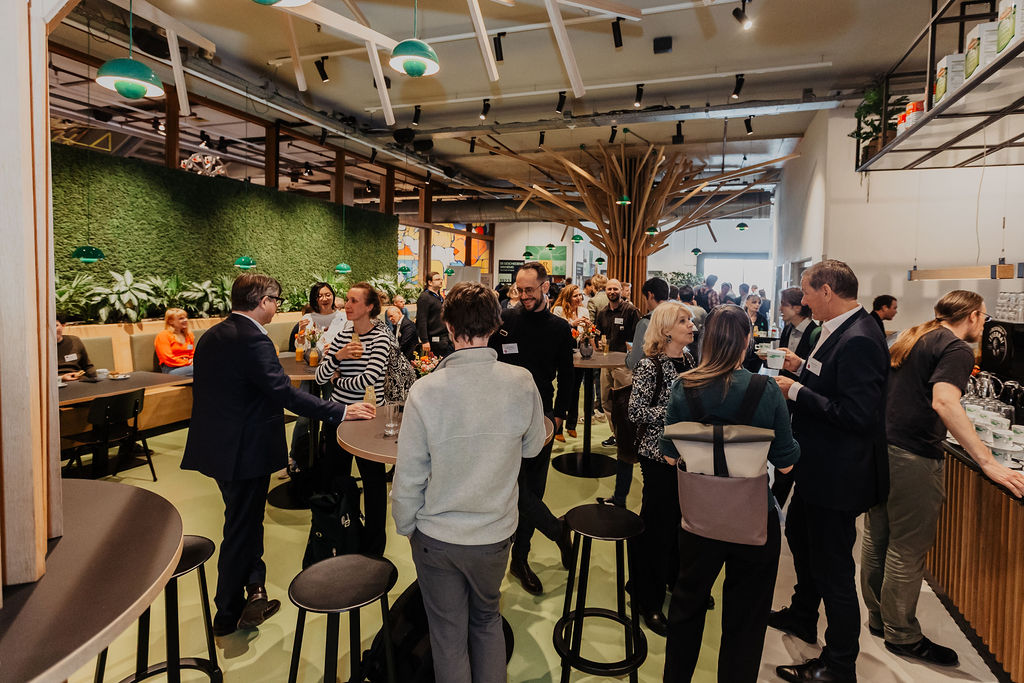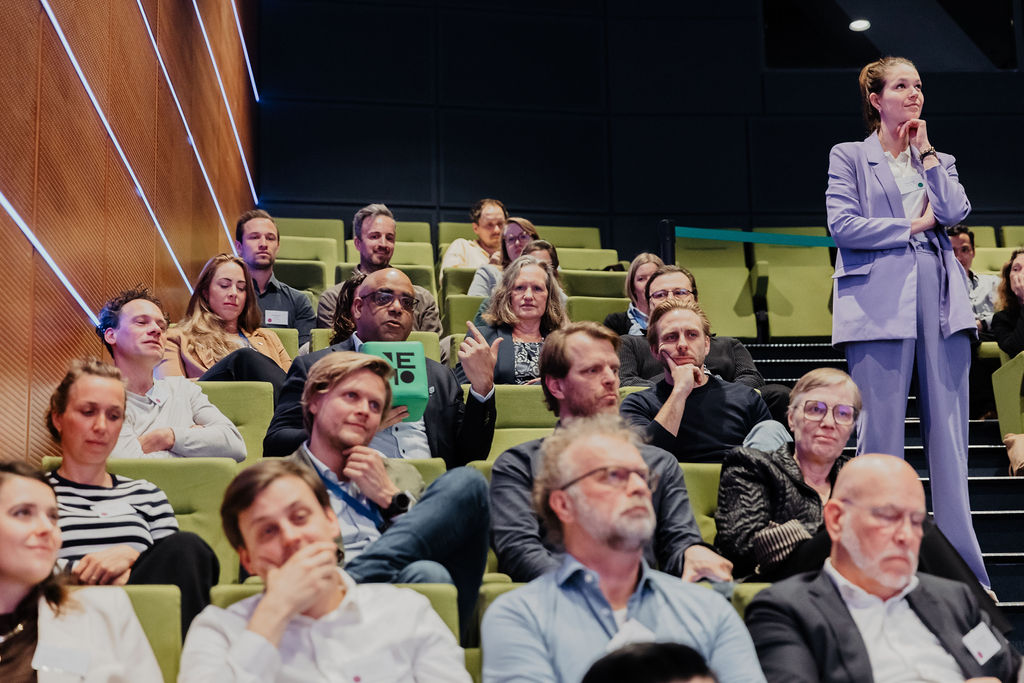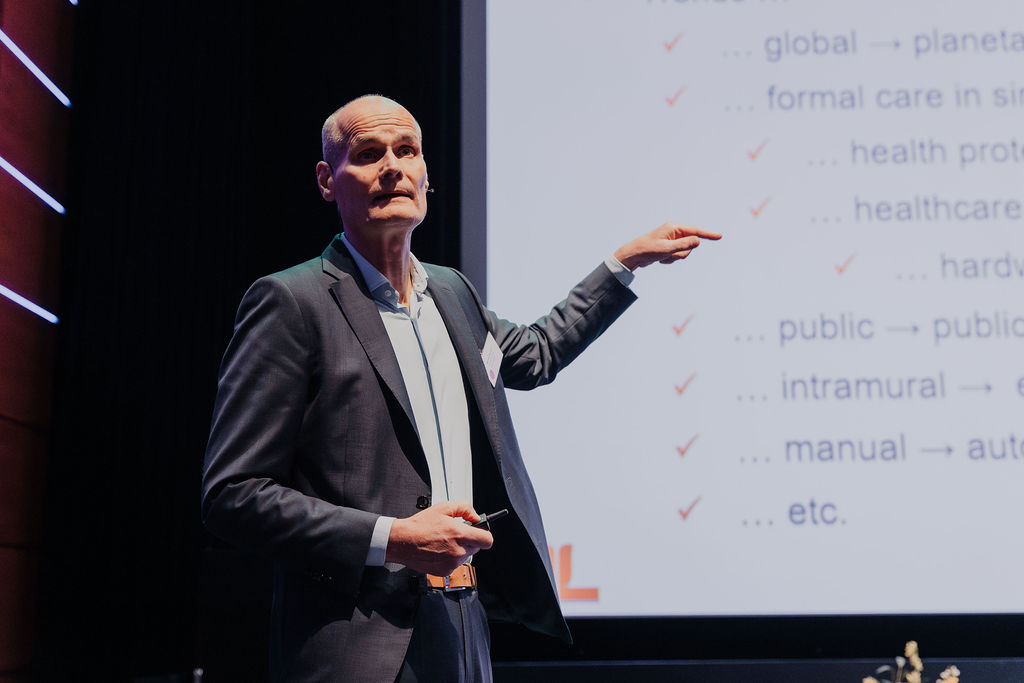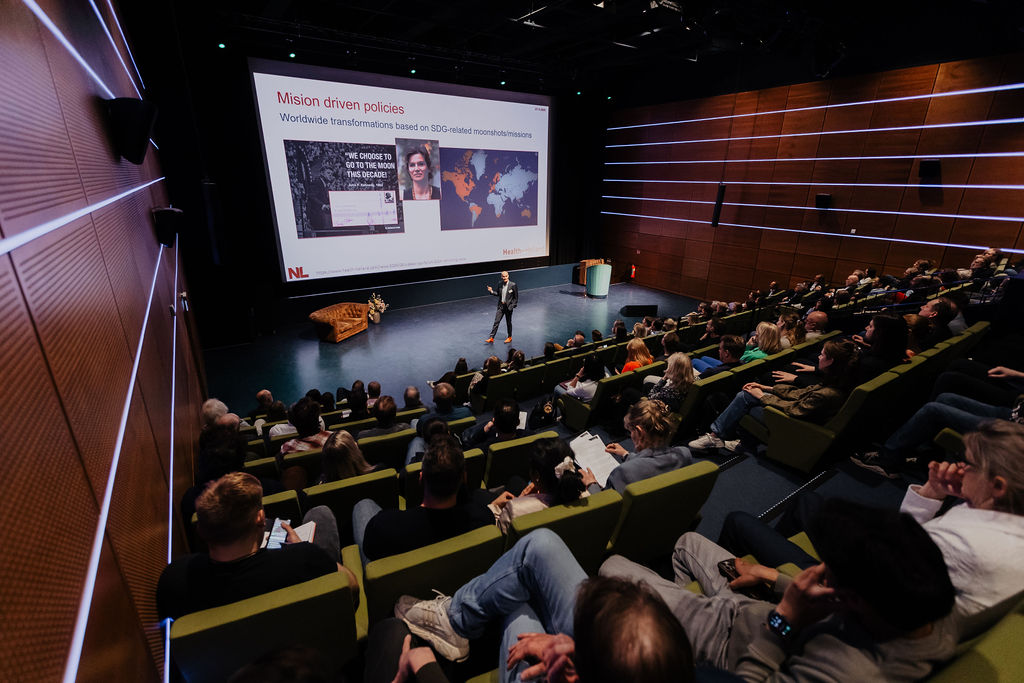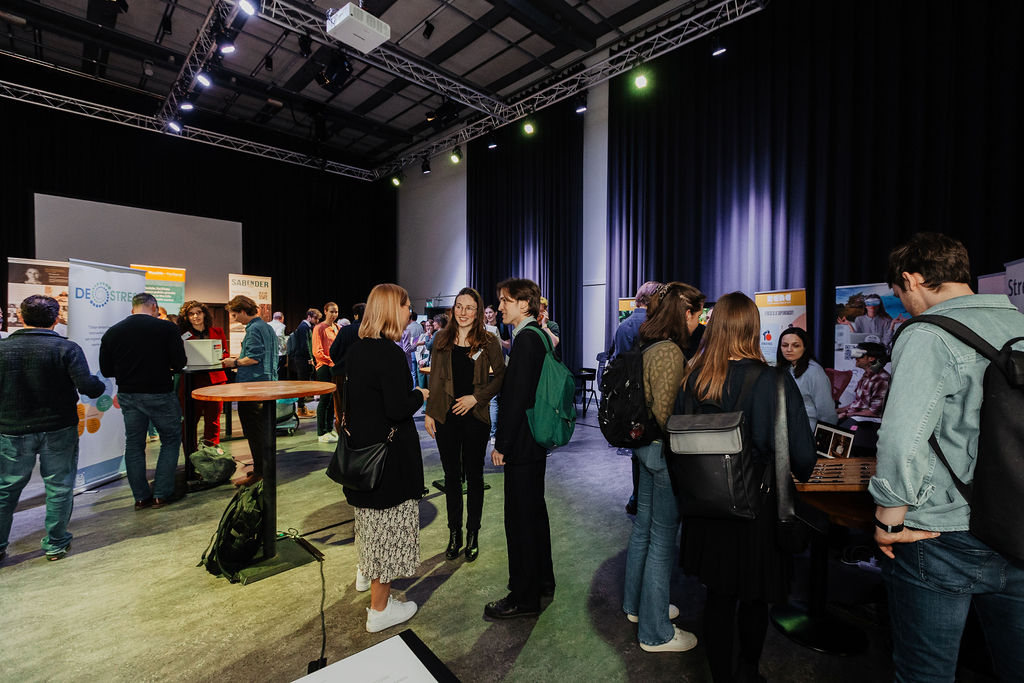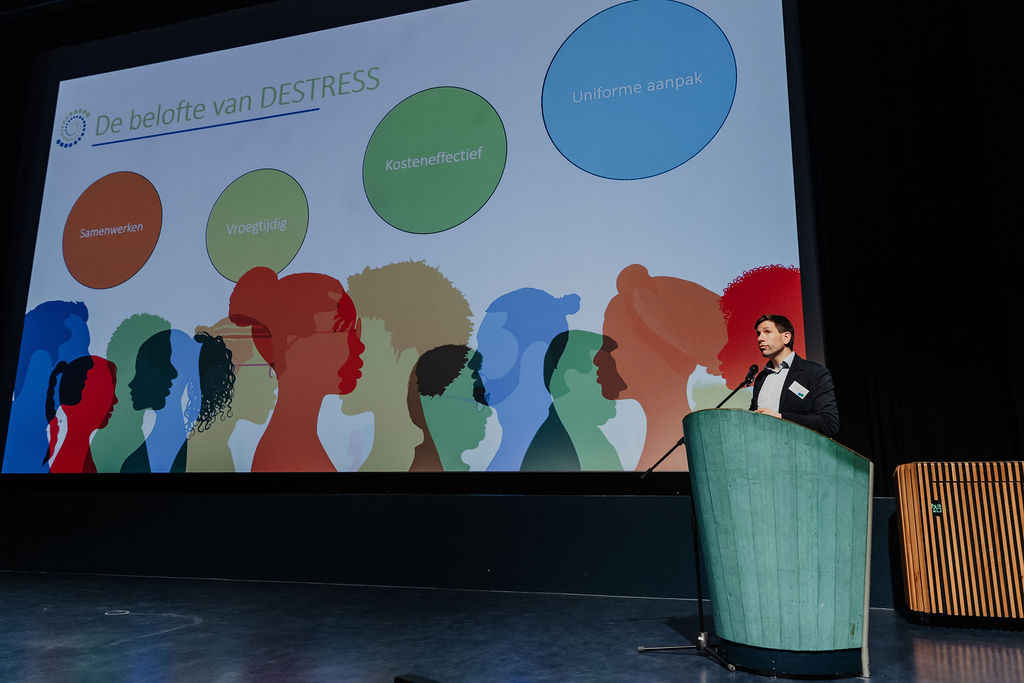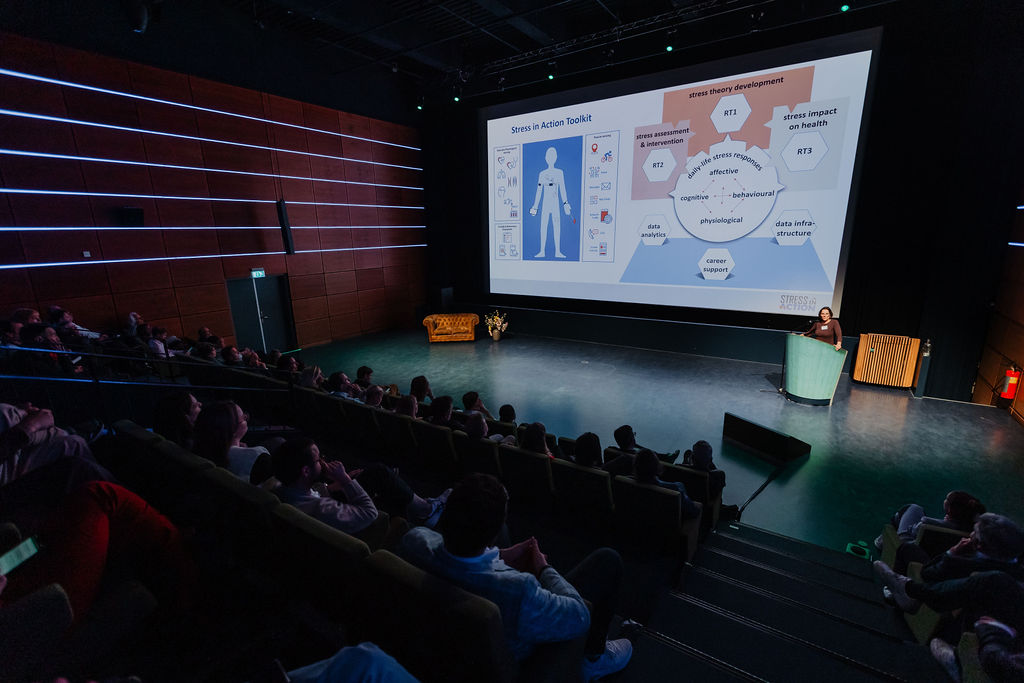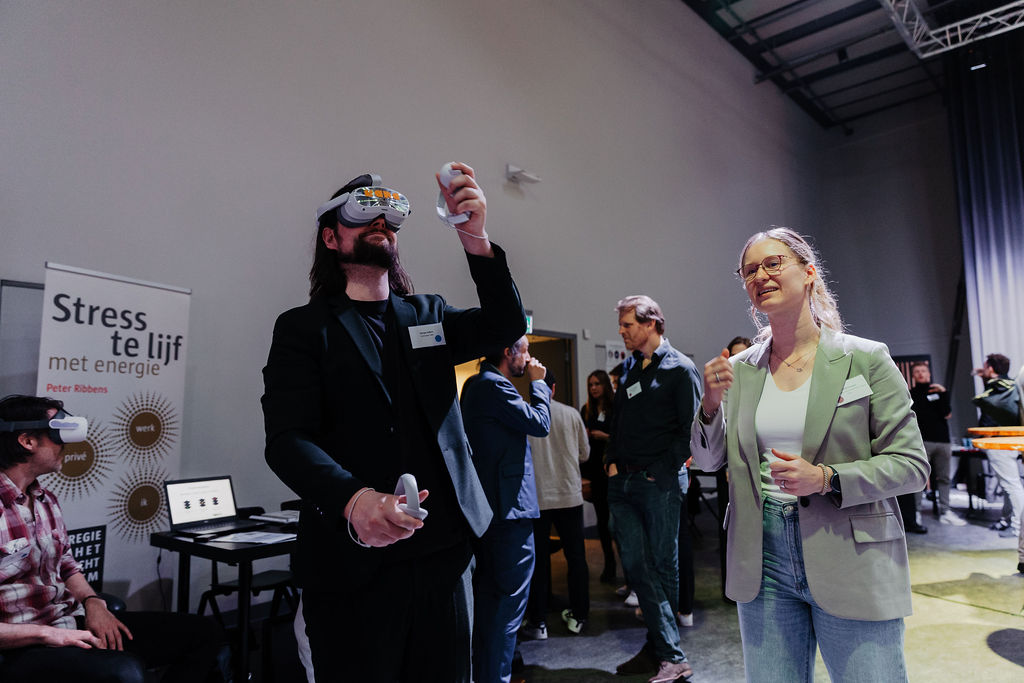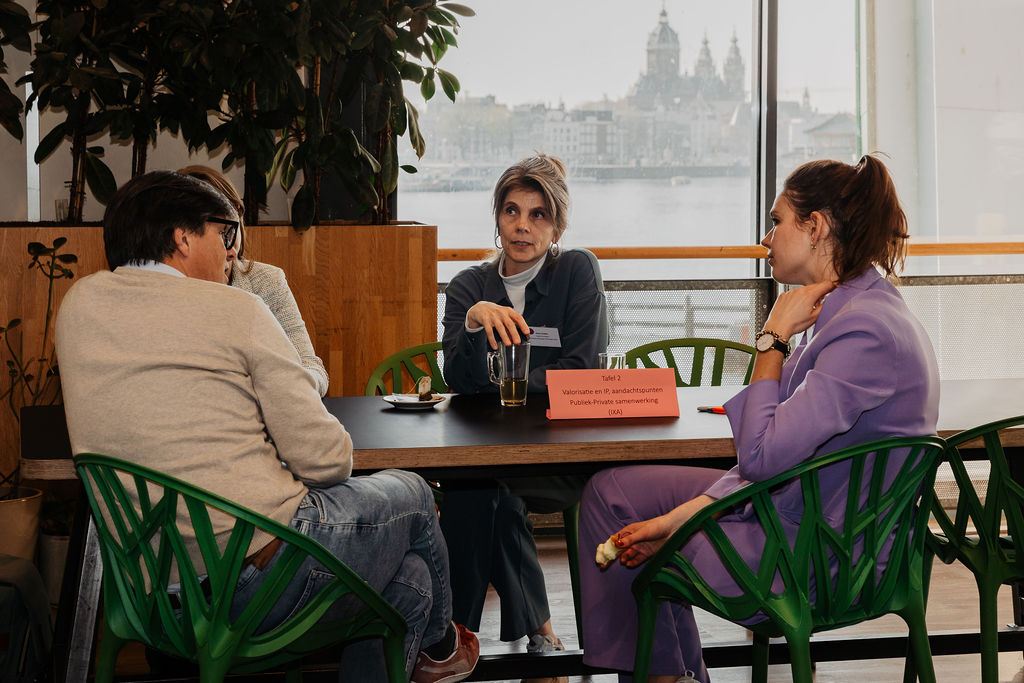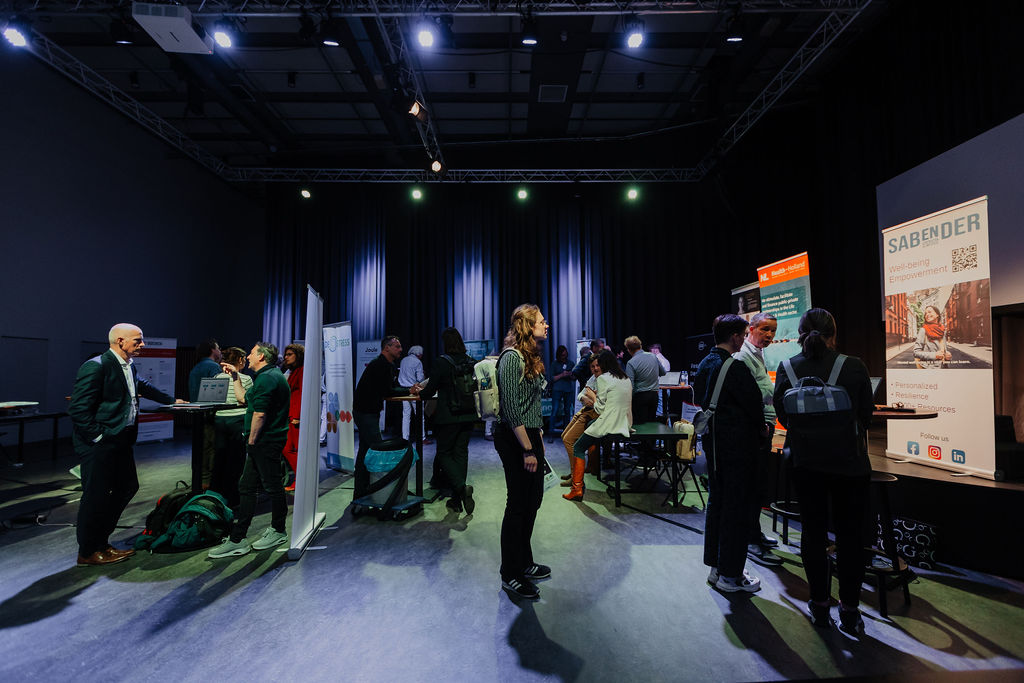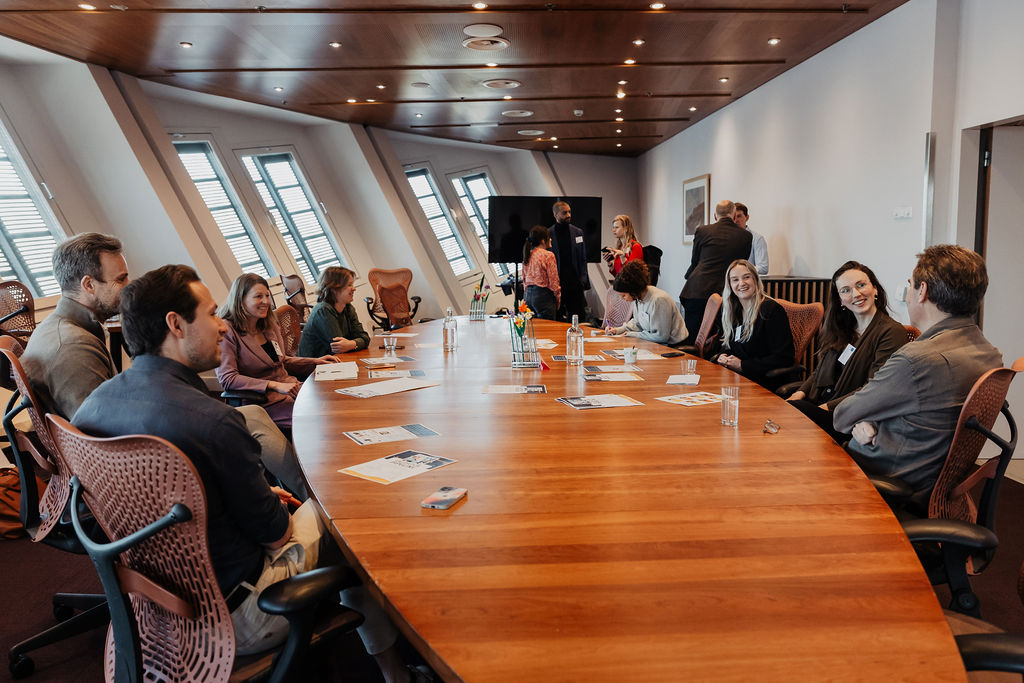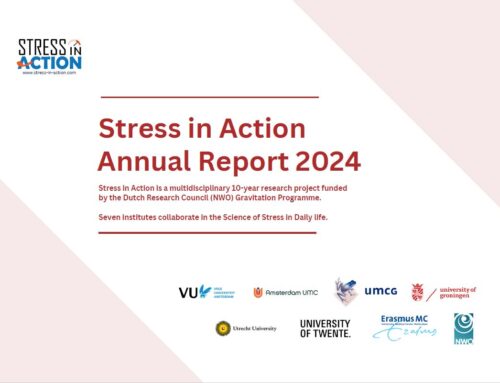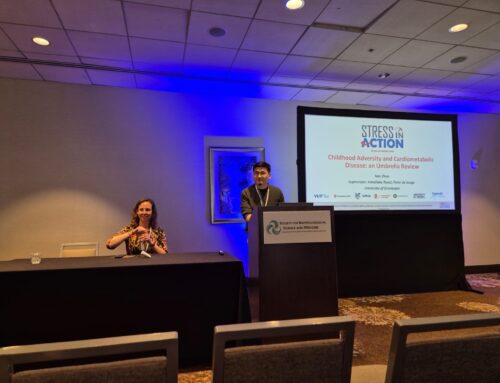On March 27, the inaugural edition of StressConnect took place at the NEMO Science Museum in Amsterdam, hosted by the research consortia Stress in Action and DESTRESS. With over 125 participants from academia, business, and healthcare, the event focused on the future of stress measurement and fostered new collaborations at the intersection of academia and industry. The inspiring venue perfectly matched the day’s mission: to bring science to the public and spark innovative partnerships. Have a look at the photos below!
The day began with a warm welcome from Géke Roelink, General director of NEMO Science Museum, followed by a keynote by Prof. dr. Nico van Meeteren, General Director of Health~Holland and an affiliate of the Top Sector Life Sciences & Health (LSH) and Erasmus Medical Center. He highlighted the urgent need for mission-driven transformation in healthcare, viewing health as a foundation for societal participation and economic growth, powered by technological innovation and public-private collaboration.
A series of dynamic one-minute pitches from ten attending businesses followed, showcasing a wide range of stress-related products and services. Prof. dr. Christiaan Vinkers then introduced the DESTRESS project, which focuses on early detection of stress signals to prevent absenteeism and mental health issues. His call for collaboration and data-driven solutions echoed Nico van Meeteren’s message, emphasizing the need for structural change in how stress in the workplace is addressed.
The program continued with ten additional business pitches, followed by an introduction to the Stress in Action project by Prof. dr. Brenda Penninx. She outlined the consortium’s goals and the upcoming second phase, set to begin in 2026, which will incorporate stress measurements into the enrichment of large Dutch population cohort studies. Followed by the last eight business pitches. Communications officer Matthijs van Kampen, the StressConnect 2025 moderator, concluded the session with a preview of the late afternoon’s activities.
The second part of the meeting offered a mix of interactive sessions. Attendees could explore 21 company stands in the Theatre room, which proved to be the most visited area of the day—highlighting strong public interest in new tools for stress monitoring. Others joined themed discussion tables on scientific validation, data infrastructure, cohort design, and valorisation. Meanwhile, three in-depth presentations offered deeper insights into specific topics.
Prof. dr. Erno Hermans and dr. Noortje Wiezer shared DESTRESS’s plans to measure stress in the workplace using a new 1,000-person cohort. Prof. dr. Eco de Geus and dr. Artemis Stefani discussed the importance of validating wearables in research, sharing candid insights into the challenges and opportunities of integrating business tools into scientific studies. Lastly, Innovation Exchange Amsterdam (IXA) presented strategies for valorisation—translating academic findings into real-world impact through partnerships and outreach.
The event concluded with networking drinks, after closing remarks from Christiaan Vinkers and Brenda Penninx, who reinforced the importance of connecting academia and industry to get a better understanding of stress in daily life. The strong turnout and engaging conversations marked a promising start for collaboration between Stress in Action, DESTRESS and potential industry partners.

